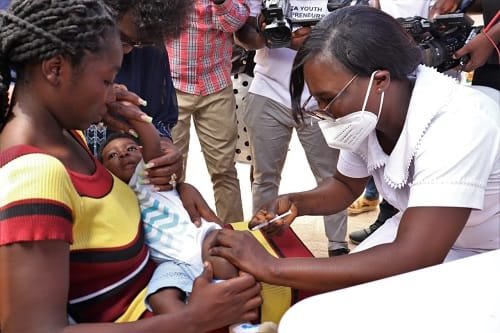Gavi, the Vaccine Alliance, has announced a major milestone in Nigeria’s public health efforts, revealing that the country successfully vaccinated 7 million girls against human papillomavirus (HPV) within a span of two weeks.
This initiative is part of a broader campaign aiming to protect 16 million girls by 2025.
The remarkable achievement, reported on Gavi’s X handle and shared with Africa Health Report (AHR), on Thursday, highlights the coordinated efforts led by the National Primary Health Care Development Agency (NPHCDA).
The campaign received significant support from Gavi, the Vaccine Alliance, the Bill & Melinda Gates Foundation, UNICEF, and the World Health Organization (WHO), marking a significant step forward in combating cervical cancer in Nigeria.
According to the Gavi, In Kwara State, the campaign’s success was fuelled by the enthusiastic collaboration of local leaders, health workers, and community advocates. On 29 May, over 200 girls at Adeta Primary School in Ilorin were vaccinated, receiving the single-dose vaccine known to prevent over 90% of cervical cancer cases.
“Health leaders in Kwara targeted more than 80% of eligible girls in a five-day drive from 27 to 31 May,” the report stated.
Assistant head teacher Amudalat Alabi attributed the high turnout to “an extensive sensitisation campaign and parental cooperation.”
“Community outreach was pivotal, with vaccinators visiting areas like Idigba to ensure all eligible girls were vaccinated.
“Kwara’s campaign success was further strengthened by the experiences from other states, intensive public awareness efforts, and support from influential figures such as the state’s First Lady, Professor Olufolake Abdulrazak, and her predecessor, Dr. Omolewa Ahmed. The LEAH Foundation, established by Dr. Ahmed, actively promoted the vaccine through grassroots activities.
“Additionally, community and religious leaders, including Emir of Shonga Dr. Haliru Ndanusa, played crucial roles in dispelling myths about the vaccine and encouraging its acceptance. Hajara Isiaka, a mother of five, initially hesitant, allowed her daughters to be vaccinated following reassurances from local campaigners.”



